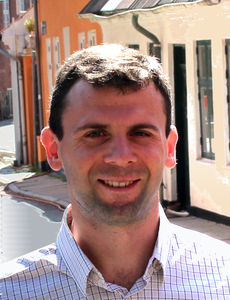
| RUS ENG |
| Full version |

|
|
| PEOPLE |
| Pechen Alexander Nikolaevich |

|
| Professor of Russian Academy of Sciences |
| Doctor of physico-mathematical sciences (2014) |
Research interests of Alexander Pechen include diverse topics in mathematics of quantum technologies, dynamics and control of quantum systems. Some results include:
* Proved Turing uncomputability of discrete quantum control [with D. Bondar, Scientific Reports 10, 1195 (2020)].
* Proposed a scheme for incoherent control of open quantum systems using engineered environments [with H. Rabitz, Phys. Rev. A 73, 062102 (2006)]. In relation to this work, showed that open quantum systems are approximately controllable in the set of all density matrices when driven by coherent and incoherent controls [Phys. Rev. A 84, 042106 (2011)].
* Proposed a general scheme for using back-action of non-selective quantum measurements for controlling quantum systems [with N. Il'in, F. Shuang, H. Rabitz, Phys. Rev. A 74, 052102 (2006)]. Found exact analytical optimal solutions for various models, including optimal approximation of the quantum anti-Zeno effect by a finite number of quantum measurements.
* Analysed quantum control landscapes for open quantum systems. Proved under certain assumptions the absence of traps in regular points for open quantum systems. These results were applied to the analysis of control in chemistry and biology forming a basis for OptiChem and OptiEvo theories.
* Found the existence of traps for controlling three-level Lambda-atom [with D.J. Tannor, Phys. Rev. Lett. 106, 120402 (2011)]. Proved absence of traps for a qubit and for controlling transmission of particle in one-dimensional potential---the first result about trap-free behaviour for quantum systems with infinite-dimensional Hilbert space.
* Derived generalized quantum stochastic differential equations with quantum multipole noise for the dynamics of quantum system interacting with bosonic reservoir beyond the weak coupling limit (with I.V. Volovich).
* Developed a new method for derivation of quantum quantum stochastic differential equations for open quantum systems interacting with a dilute quantum gas. Discovered the appearance of free white noise for such systems thereby finding a new connection of the non-commutative free probability with physics [J. Math. Phys. 45, 400–417 (2004); J. Math. Phys. 47, 033507 (2006)].